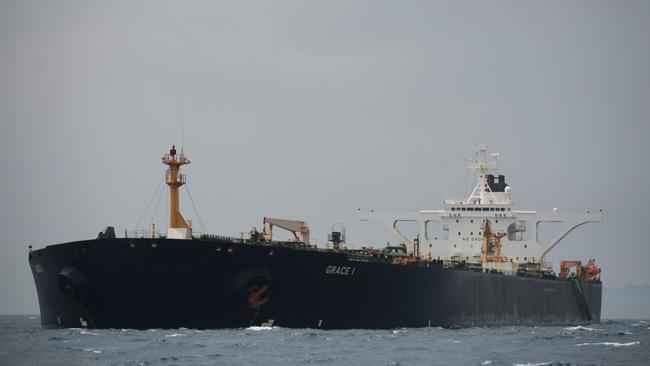Israelis try to block return of Iranian tanker held by marines
Israeli organisation linked to Mossad is seeking to seize the Iranian ship boarded by Marines.

An Israeli activist organisation with links to Mossad is seeking to block the return of an Iranian oil tanker seized by Royal Marines off Gibraltar, threatening British diplomatic efforts to defuse tensions in the Gulf.
Lawyers for Shurat HaDin will file a petition in the Supreme Court of Gibraltar today seeking an injunction to seize the vessel and its cargo. They want them to be used to pay damages for the victims of terrorist acts allegedly sponsored by Iran.
The organisation has won a series of judgments in US courts holding Iran responsible for the murder of Israeli-Americans by Islamist groups including Hamas and Hezbollah.
Under the Foreign Sovereign Immunities Act Tehran was found liable for hundreds of millions of dollars in damages, but only a tiny fraction has ever been recovered through seized Iranian assets. The act does not apply automatically in courts outside the United States but they can be petitioned to consider an American ruling.
A team of British lawyers, led by Jonathan Goldberg, QC, has also written to the port authorities in Gibraltar to demand that the tanker, Grace 1, is impounded while inspections are carried out to determine its seaworthiness. Shurat HaDin, whose president Nitsana Darshan-Leitner says that she has held regular briefings with Mossad, the Israeli spy agency, claims to have acquired intelligence suggesting that the tanker is unfit to sail.
Grace 1 was seized by Royal Marines this month as it passed through the Straits of Gibraltar. Britain said that the tanker was carrying oil to Syria in violation of European Union sanctions and that its seizure was unconnected with its Iranian origins or sanctions that the US imposed on Tehran after it withdrew from the 2015 nuclear deal. Spain, however, said that the seizure followed a request from the US.
Iran responded by attempting to apprehend a British tanker off the Strait of Hormuz. Tehran denied involvement but warned that British vessels would be targeted in retaliation for the seizure. On Saturday Jeremy Hunt, the foreign secretary, spoke to his Iranian counterpart, Mohammad Javad Zarif, and offered to release the tanker in exchange for a promise not to send its oil cargo to Syria.
Ms Darshan-Leitner said that she was hopeful of winning the case. “The Grace 1 in Gibraltar is a rare opportunity for the victims to seize Iranian assets and for European governments to show that they are unforgiving in the struggle against terrorism,” she said.
A spokesman for the Iranian Embassy in London said: “The position is clear. The tanker has been seized illegally and should be released as soon as possible.”
A Foreign Office spokesman said: “The investigations being conducted around the Grace 1 are a matter for Gibraltar. It would be inappropriate to speculate on hypothetical legal action.”
The case complicates Mr Hunt’s battle to save the Iran nuclear deal from collapse. At talks with European allies in Brussels yesterday (Monday) he warned that there was only a “small window” left to salvage the deal — in which Iran agreed to limit its sensitive nuclear activities and allow in international inspectors — after the US reimposed sanctions. Iran has dropped two of its commitments to the deal and said yesterday (Monday) that it would abandon the remainder unless sanctions ended.
The Times


